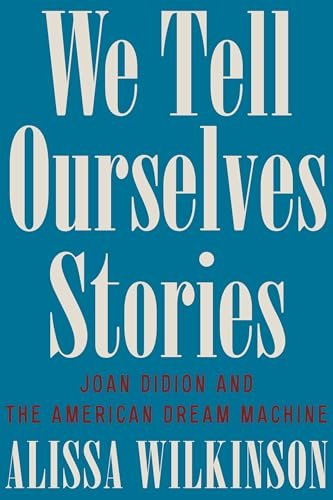
23 May Book Review of We Tell Ourselves Stories: Joan Didion and the American…
Exploring Leaps of Insight: A Review of We Tell Ourselves Stories: Joan Didion and the American…
Joan Didion has long been a literary compass for me, guiding my understanding of America’s complex social fabric through her incisive prose. When I stumbled upon We Tell Ourselves Stories: Joan Didion and the American…, I found myself drawn into a world that not only interrogates Didion’s life and work but examines the broader cultural narratives surrounding her. The book’s promise to unravel the threads of Didion’s influence felt like an invitation to explore not just her stories, but our own—a compelling journey worth taking.
This book meticulously weaves together key themes from Didion’s expansive career, highlighting her position as both an observer and participant in an America grappling with the very essence of freedom. As Didion chronicled the tumultuous sixties—a time when the myth of American self-determination began to fray—we see how her unique perspective captures the tension between idealism and harsh reality. The turbulent backdrop of Civil Rights protests and the Vietnam War serve as a rich tapestry, vividly painted through Didion’s detached yet intimate lens. It’s a distance that felt eerily familiar, echoing today’s fractures.
What resonated profoundly with me was Didion’s ability to embrace chaos while maintaining her composure—her signature touch. The section on The White Album was particularly illuminating; reading her fragmented accounts of a society on the brink reminded me of our present-day angst. She saw beneath the glamorous surface, as characterized by ineffable social phenomena like the Manson murders and the media vortex of the time. Didion’s eye for detail and narrative control feels both unsettling and comforting, much like witnessing a balanced tightrope walk between madness and clarity.
Wilkinson’s exploration of Didion reveals her vulnerability beneath the polished surface—a reminder that even the most controlled narratives can unravel. The moments when Didion confronts personal loss, especially in The Year of Magical Thinking, tug at the heartstrings. Her famous quote, “What I aim for is total control,” illustrates a truth about our human existence—that beneath our carefully curated lives, uncertainty looms. This balance of emotional distance and engagement pulls readers into Didion’s world, producing an echo of recognition within ourselves.
The writing in this book felt effortless yet poignant. Each chapter flowed gracefully as I navigated from one theme to another, creating a dialogue between my own experiences and Didion’s. The narrative pacing allowed for reflection as I absorbed Didion’s observations on the American myth and its discontents—a satisfying rhythm that I savored throughout my reading experience.
We Tell Ourselves Stories is a treasure trove for anyone intrigued by Didion’s work, those seeking to understand the interplay of culture and narrative, or simply readers who appreciate a well-crafted examination of an artist’s life. It’s both an insightful companion to Didion’s literature and a profound exploration of the narratives we construct around our identities.
In the end, this book not only deepened my appreciation for Didion’s oeuvre but also urged me to confront my own stories and the multifaceted identity I present to the world. It’s a beautiful testament to the power of storytelling, reminding us that we are all, in ways large and small, striving to make sense of the chaos around us. Whether you’re a lifelong admirer of Didion or a curious newcomer, this book promises resonance and reflection.
Discover more about We Tell Ourselves Stories: Joan Didion and the American… on GoodReads >>









